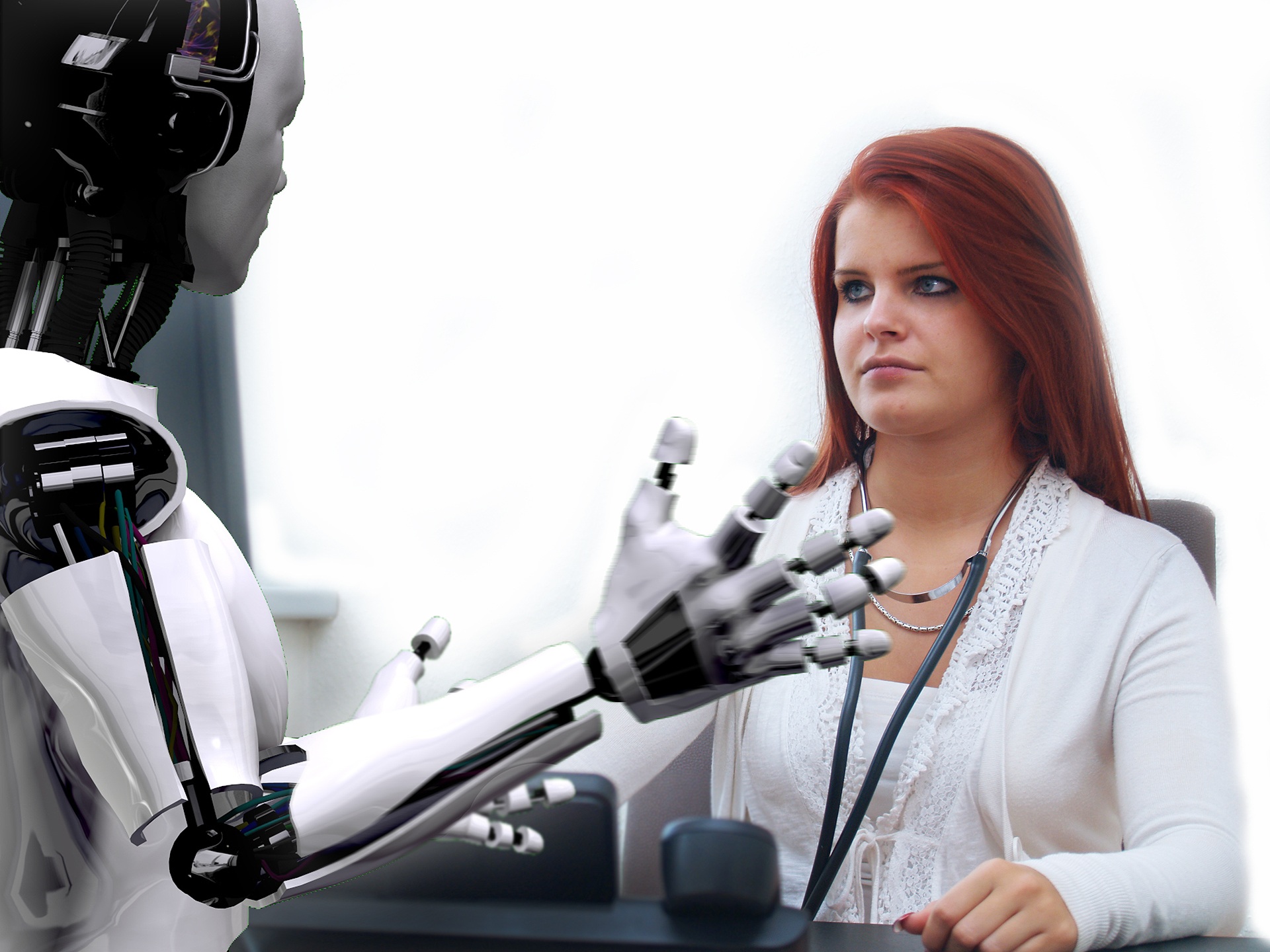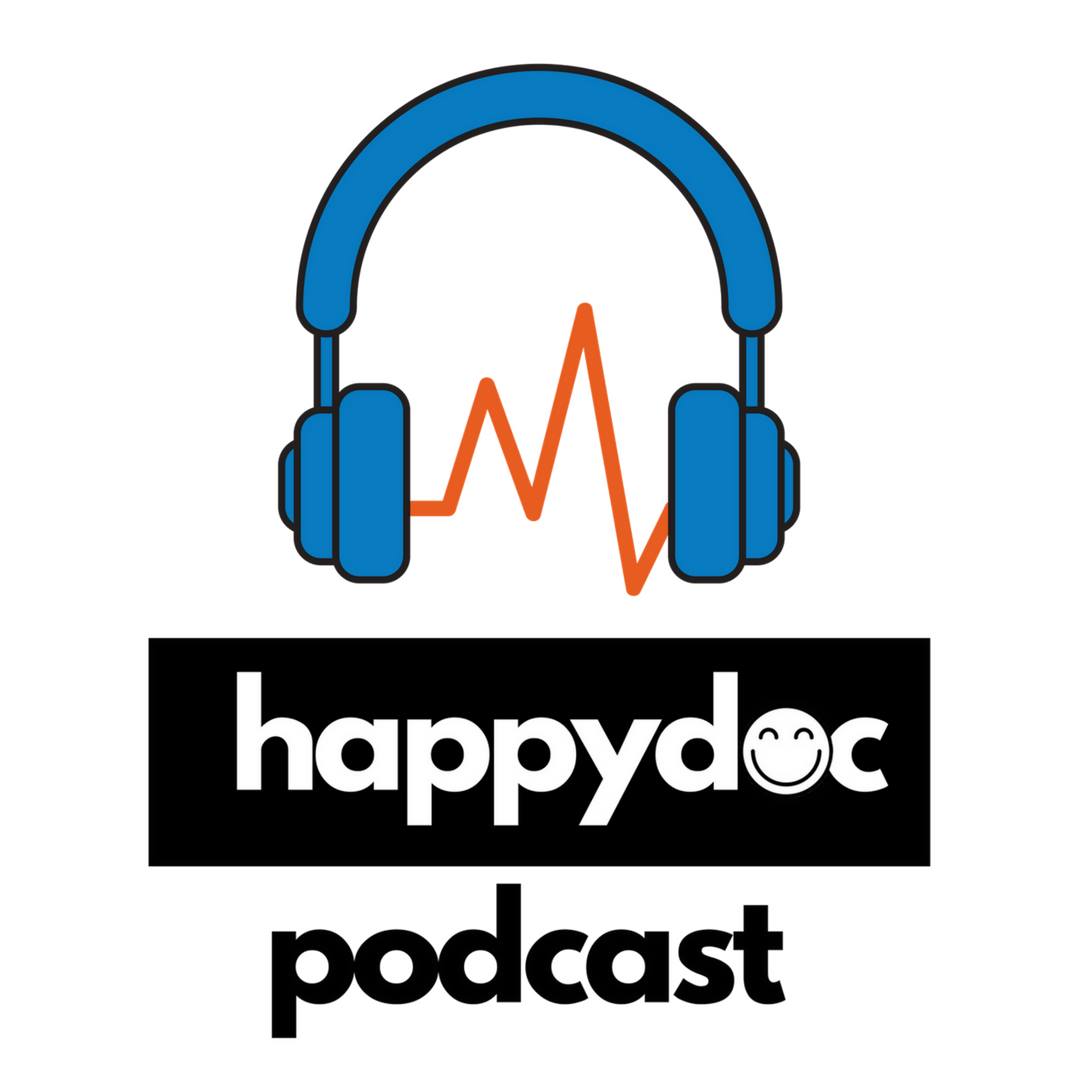by Neel Desai, M.D. The Happy Doc Podcast Episode 69:…

Are you a human, an animal or a robot?
I was inspired a couple of weeks ago. Sitting at the WeWork facility in Northern Liberties, Philadelphia. I looked at the group of entrepreneurs, creatives and innovative thinkers sitting in front of me. What were we doing you might ask? Collaborating to help one another build our dreams. This is the epitome of the human experience.
One of the topics that came up in conversation was the difference between a man and an animal. Jay, one of the members of our group, said it simply: “The main skill that humans have over animals is the ability to orate and tell stories.”
Humans are special in that we can experience life, take in the important stimuli and information and pass on experiences by sharing. The story is heard by other individuals and something very special happens. People take in information, connect it to their own experience and verbalize thoughts to generate a new shared experience. This shared experience is one where each individual learns something about each other, as well as the topic at hand.
Yet the conditions of storytelling must also be taken into account. What is the intent and context of the story being told? Something very special happens when the intention is set for honesty, love, learning and helping one another. When one can create a space where the air is not filled with judgment, but rather the search for earnest truth, meaning and learning. This is where the magic happens. This is connection, community, and one of the many treasures people ultimately seek.
When a safe space like this (whether within the individual or as a community) is cultivated, creativity develops. The ability to create, to come up with new ideas, to develop, to improve, to be a thinker and an innovator, is the magic of the human being. The magic is seeing a possibility and having just enough courage and will-power to bring that idea into physical manifestation. How amazing it is to take a simple thought and to be able to see it created right in front of you? Even more surprising: when your thought expressed into the world inspires others to do the same. This is the ripple effect of human ingenuity and innovation.
But with all of that positivity and possibility, I think, unfortunately, we might be living in a world of robots and animals. Have you ever had the feeling that the world is just too slow for you … that nobody gets it … that things could simply be done better? This is a very common experience, but many just keep it to themselves. Then this thought just stays inside of you, isolation creeps in, and you are left alone thinking to yourself, “What if?”
“What if I’m a robot,” we may wonder. You see, robots are automatic processors. Robots take an input and develop an appropriate output based on parameters. When I look at the world of medicine, or other industries for that matter, I easily can see how this form of thinking can take a hold. As a young doctor, I have a set amount of hours to work as an employee — six days a week of 12 hours, for example. A 12-hour shift leaves four hours or less to take care of personal and family duties, assuming I get an appropriate eight hours of sleep. Four hours leaves very limited time to cook, exercise, clean, socialize and recuperate from a day of hard work. Alongside that difficult work, inundation with a heavy client load leaves little breathing room to relax and recover between clients. With limited time between patients, there is limited time to reflect on experiences and how to do better. I mean how can change and growth happen, when all we are trying to do is get by? So let’s ask ourselves, at what points of our days are we human, and at what points are we behaving as robots?
It’s important to recognize the number of repetitive tasks we take throughout the day. I reflect on current documentation requirements, even as a young doctor, and I notice the amount of redundancy that takes place within each note and patient encounter. While I am very hopeful that newer technological advances will streamline this further, I can’t help but find the whole situation comical, thinking how much of the work we are doing could be streamlined right now with proper programming.
I want to also discuss animals. Animals are amazing creatures that require love, affection, play, food, sleep, water — just like we do. The difference again between human and animal is that humans have major cognitive boosts, which allow for deeper analysis as well as the ability to orate and create as we have already discussed. Another feature of animals is that they are mainly stimulus-driven. An animal generally cannot differentiate one loud noise from another, for example, and their immediate reaction is to be afraid. Of course, this makes sense, animals want to survive. Fear plays a vital role in survival and ramping up the sympathetic nervous system with a fight-or-flight responses. And yet we can see that with the right amount of conditioning, an animal will eventually become accustomed to certain stimuli and form learned behaviors. These learned behaviors are essential to adapting to our surroundings and differentiating what’s normal from abnormal, again an important protective mechanism.
As I think about animals, I reflect on the times where I might have stimulus-driven thinking, times where my pure want and need for certain stimuli get the better of me; times where I don’t apply my knowledge as a human. It comes in times of great stress when I am exhausted and I go to Wendy’s by my house instead of making myself a healthy meal (or better yet, prepare multiple meals). It comes in times where I have too much pride, and I don’t ask my supervising doctor a clarifying question about a medical issue because I don’t want to feel like an idiot or look incompetent. I let my fear (stimulus) overcome my rational thinking, and I lose the opportunity to learn truly.
I also think about the learned behaviors I have formed as I become desensitized by certain stimuli. What initial pressures have I become so bombarded with, that I forget certain experiences may in fact not be normal, but potentially even abusive. Is it possible that I have permanently changed from being the human that I once was to something that doesn’t live in this world like it’s supposed to? In what ways have I adapted to the stimuli surrounding me, and how might that affect my personal health, the culture of medicine and future health professionals as a whole?
I then wonder about stimulus-driven thinking when I think of long- versus short-term goals. Animals don’t always plan ahead. Stimulus-based thinking looks at the requirements of this moment. This thinking can be beneficial at times, but we must also measure the important outcomes of the beautiful things that take time in our life. This could be a simple example like watering a plant, the connections formed in long-term relationships, or building skills in a career. What short-term actions are we taking that harm the long-term development of a bigger and brighter future?
So — are we human, robot, or animal?
At what points are we participating in repetitive thinking and action, and how much of that is necessary? If it is necessary what can we do to automate it? What technologies or systems might be out there for us? If we are unaware of certain technology, who might we connect to that may enlighten us on potential solutions to automate our lives? Can we take the time to journal and record times where we participate in repetitive tasks and recognize where we can do better?
At what points are we animals? When do we allow our emotions, cravings and direct stimuli to overcome our ability to be the amazing and full humans that we are? How might we begin to change the environment or remove influences that increase the stimuli we are trying to avoid? What adaptations have we made to survive with our given stimuli? In what areas might have we become desensitized? How might we bring an awareness to those areas and shift our thinking? What short-term thinking have we been participating in, and how might we develop the ability to work on our bigger and brighter futures as a self and as a society?
My biggest hope is that no matter where we are in life, we can forgive and grow from our past, see a brighter future, and take advantage of the eternal present moment. Even though we can be animals and robots at times, how might we build a life where we can express the humans that we are ultimately meant to be?
Taylor Brana DO
Also Posted on KevinMD.com – Social Media’s Leading Physician Voice

This Post Has 0 Comments